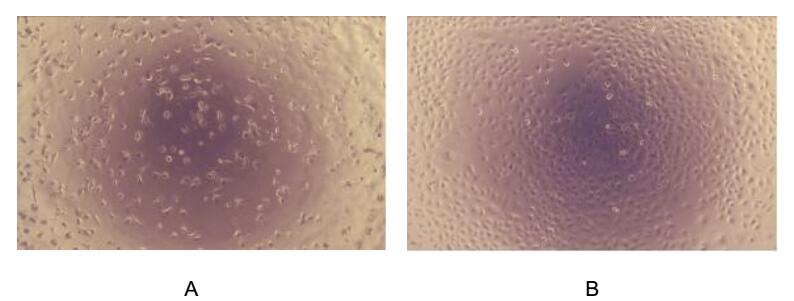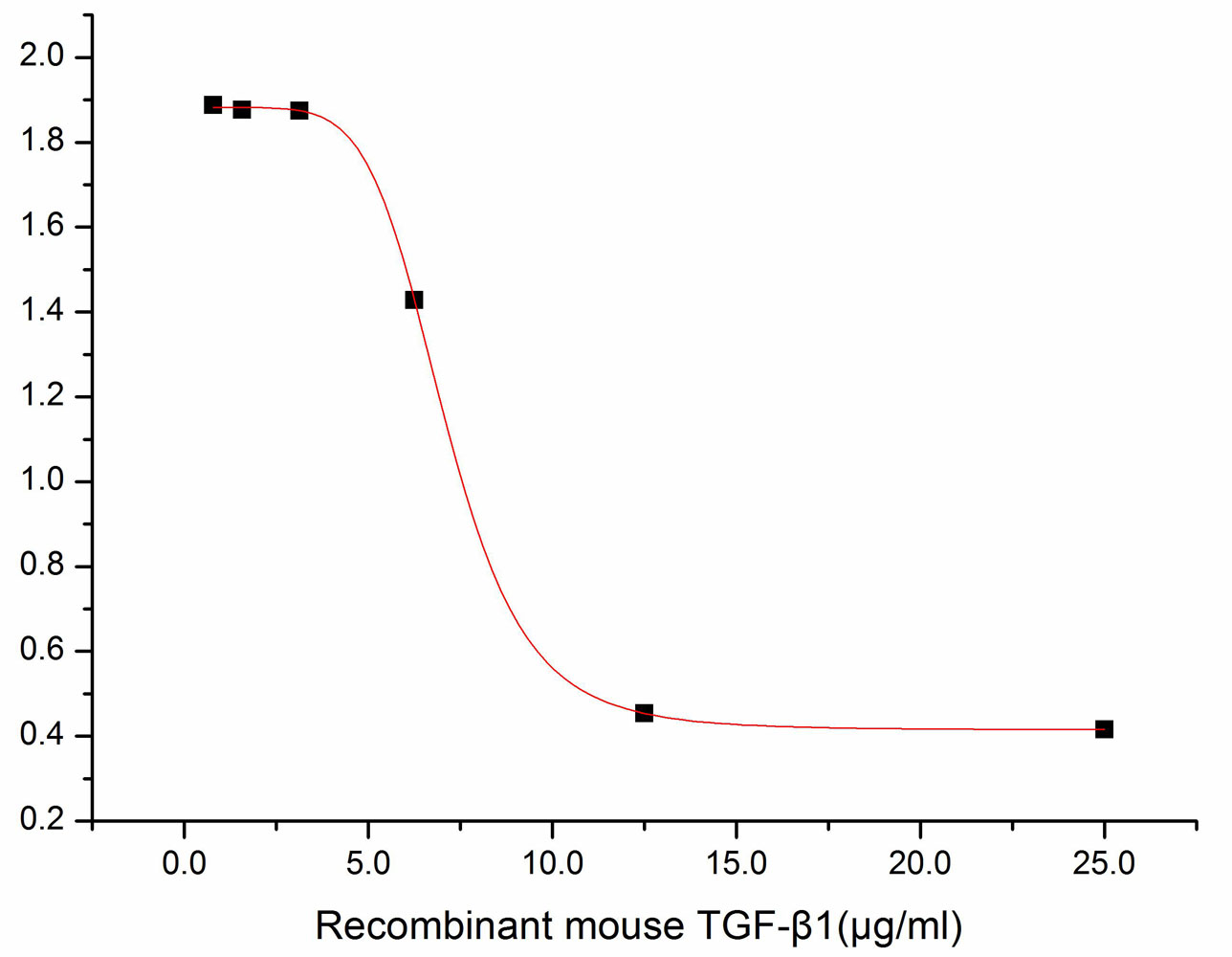Active Transforming Growth Factor Beta 1 (TGFb1)
TGF-B1; CED; DPD1; LAP; Camurati-Engelmann Disease; Latency-associated peptide
- Product No.UAPA124Mu01
- Organism SpeciesMus musculus (Mouse) Same name, Different species.
- Buffer FormulationPBS, pH7.4, containing 0.01% SKL, 5% Trehalose.
- TraitsFreeze-dried powder
- Purity> 90%
- Isoelectric Point8.4
- ApplicationsCell culture; Activity Assays.
- Download Instruction Manual
- UOM 10µg50µg 200µg 1mg 5mg
-
FOB
US$ 137
For more details, please contact local distributors!US$ 342
For more details, please contact local distributors! US$ 684
For more details, please contact local distributors! US$ 2052
For more details, please contact local distributors! US$ 5130
For more details, please contact local distributors!
ACTIVITY TEST of the Active Transforming Growth Factor Beta 1 (TGFb1)

Transforming growth factor beta 1 or TGF-β1 is a polypeptide member of the transforming growth factor beta superfamily of cytokines. It is a secreted protein that performs many cellular functions, including the control of cell growth, cell proliferation, cell differentiation, and apoptosis. To test the effect of TGF-β1 on cell apoptosis, A549 cells were seeded into 96-well plates at a density of 5,000 cells/well with 1% serum standard DMEM including various concentrations of recombinant mouseTGF-β1. After incubated for 48h, cells were observed by inverted microscope and cell proliferation was measured by Cell Counting Kit-8 (CCK-8). Briefly, 10µL of CCK-8 solution was added to each well of the plate, then the absorbance at 450nm was measured using a microplate reader after incubating the plate for 2 hours at 37℃. Proliferation of A549 cells after incubation with TGF-β1 for 48h observed by inverted microscope was shown in Figure 1. Cell viability was assessed by CCK-8 assay after incubation with recombinant mouse TGF-β1 for 48h. The result was shown in Figure 2. It was obvious that TGF-β1 significantly inhibit cell viability of A549 cells. The ED50 is 7.1μg/mL. (A) A549 cells cultured in DMEM, stimulated with 12.5μg/mL TGF-β1 for 48h;
(B) Unstimulated A549 cells cultured in DMEM for 48h.
Figure. Inhibition of A549 cells proliferation after stimulated with TGF-β1

Figure. Inhibition of A549 cells proliferation after stimulated with TGF-β1.
USAGE of the Active Transforming Growth Factor Beta 1 (TGFb1)
Reconstitute in 10mM PBS (pH7.4) to a concentration of 0.1-1.0 mg/mL. Do not vortex.
STORAGE of the Active Transforming Growth Factor Beta 1 (TGFb1)
Avoid repeated freeze/thaw cycles. Store at 2-8°C for one month. Aliquot and store at -80°C for 12 months.
STABILITY of the Active Transforming Growth Factor Beta 1 (TGFb1)
The thermal stability is described by the loss rate. The loss rate was determined by accelerated thermal degradation test, that is, incubate the protein at 37°C for 48h, and no obvious degradation and precipitation were observed. The loss rate is less than 5% within the expiration date under appropriate storage condition.
INCREMENT SERVICES
BCA Protein Quantification Kit
Molecular Mass Marker for Protein
Monoclonal Antibody Customized Service
Polyclonal Antibody Customized Service
Protein Activity Test Experiment Service
Electrophoretic Mobility Shift Assay (EMSA) Experiment Service
Buffer
Lentivirus Packaging Experiment Service
Adenovirus Packaging Experiment Service
Real Time PCR Experimental Service
Spike RBD Protein (S-RBD)
Protein G
Protein A



